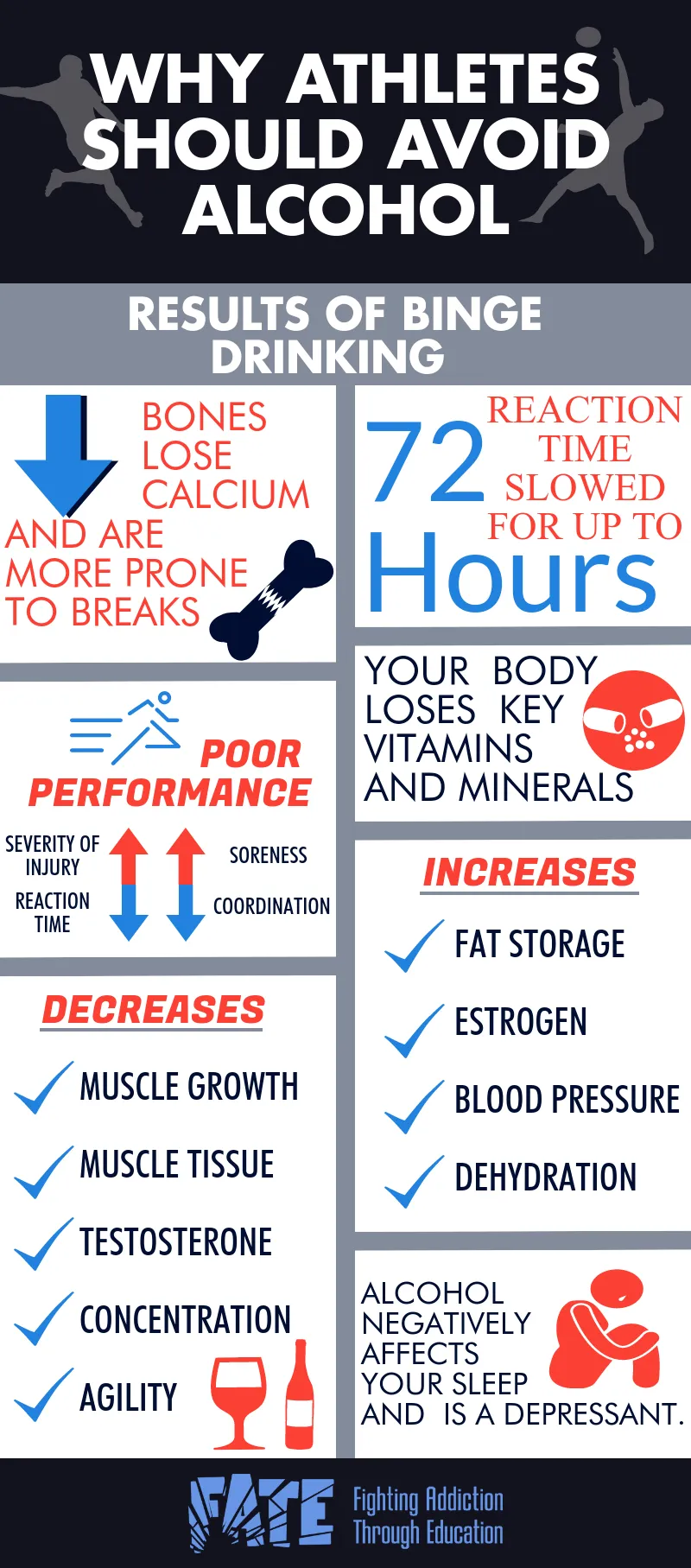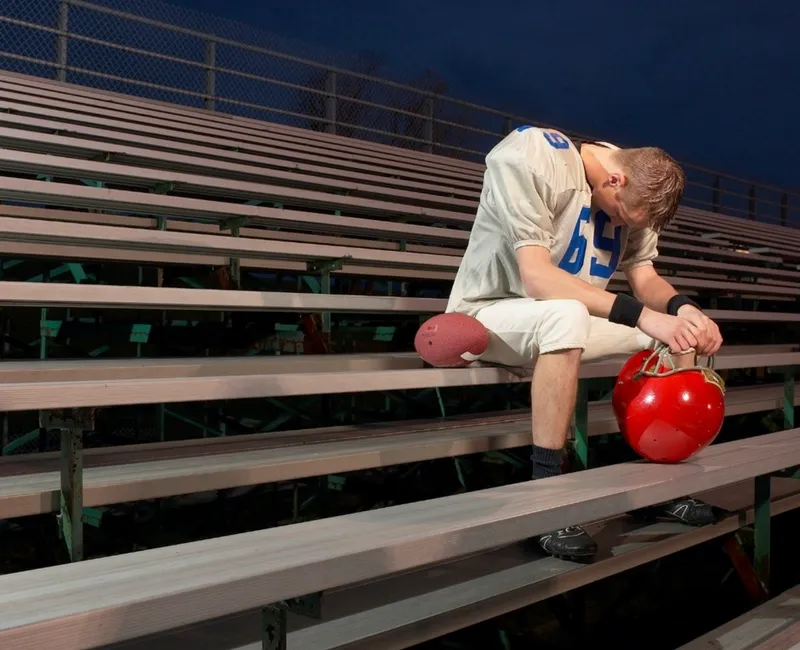Think of your favorite movie scene of a team winning the big game. What comes to mind? There is usually celebratory champagne popped, or beer guzzled at a bar with a lot of high fives and back slapping. The result is usually not as cheerful by the end of the night.
Alcohol can sound like a good way to loosen up after a game, but what works in the movies doesn’t work in real life. There are plenty of better options in place of consuming alcohol, and abstaining will help to continue your winning streak, not break it.
Drinking Culture for Athletes
Athletes are natural risk-takers, so they are more apt to drink than those who are risk-adverse. Alcohol is the most commonly consumed substance among the athletic population. Many studies from the early 2000s showed athletes were more likely than non-athletes to drink.
Consider all the wonderful athletes who were set up for success but had to leave their glory days behind them due to unhealthy drinking habits. Choose to abstain from alcohol and other intoxicants, and see where your dreams can take you.
Aside from the risk of breaking the law as an underage drinker and losing your spot on the team, here are some fact-based reasons to strengthen your resolve in abstaining.

Results of Drinking Too Much Alcohol
Malnutrition, muscle cramps, numbness, frequent diarrhea. What do these have in common? Alcohol. These side effects are a result of drinking too much and are never pleasant for anyone, especially high school athletes who need to be ready to play.
How Alcohol Affects High School Athletes’ Success

Poor Performance
Drinking alcohol can decrease your athletic performance after consumption. You may continue to be nauseous or drowsy days after drinking. If you are known for speed on the field or court, understand that your body will be affected.
Weaker Bones
Consuming alcohol flushes calcium out of your bones, which makes them weaker and more apt to break. Imagine how horrible you’d feel to sit out of a game and not be able to help your teammates.
Muscle Growth
Trying to build muscle? Alcohol could have the opposite effect. Alcohol not only makes it hard for you to bounce back after a grueling workout, but it also makes it harder to build new muscle.
Body Fat Ratio
Alcohol stimulates insulin production, leading to fat storage, hence the term “beer belly.” Too much extra weight can affect an athlete’s speed and agility.
Poor Sleep Cycles
Sleep is critical for a healthy, recovered body. Alcohol can keep you from that deep restorative sleep you need to recover physically and mentally to perform your best.
Vitamin Deficiency
Alcohol consumption causes many vitamins and minerals to be drained at a much faster pace. Say goodbye to vitamins A, C, the B’s, calcium, zinc and phosphorus.
Too Many Endorphins
We’ve all heard of endorphins and how they make you happy, and we would agree that endorphins are great. They increase happiness and reduce pain. However, they aren’t so great when too many are released because of drinking heavily. By releasing too many at once, you could be setting yourself up for depression or extreme fatigue.
If you are passionate about your sport, you shouldn’t let alcohol impact your success. Learn more about FATE’s Life of An Athlete program.
